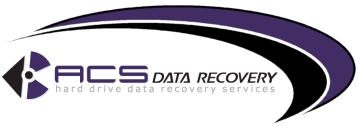|
Case studies include information about actual recoveries
completed within our lab. You may find similar symptoms to a problem
you are having with your drive. Here are a couple of recent cases:
• 250GB
Seagate Clicking
• 1TB Raid
0
|


|
|
**No Evaluation Fees / No Attempt Fees** Free evaluation and free external hard drive with every successfull recovery. You pay nothing unless your data is recoverable. Call now for a free quote: 1-800-717-8974. |
Defragmentation
 In
the context of administering computer systems, defragmentation is a process
that reduces the amount of fragmentation in file systems. It does this
by physically organizing the contents of the disk to store the pieces
of each file close together and contiguously. It also attempts to create
larger regions of free space using compaction to impede the return of
fragmentation. Some defragmenters also try to keep smaller files within
a single directory together, as they are often accessed in sequence. In
the context of administering computer systems, defragmentation is a process
that reduces the amount of fragmentation in file systems. It does this
by physically organizing the contents of the disk to store the pieces
of each file close together and contiguously. It also attempts to create
larger regions of free space using compaction to impede the return of
fragmentation. Some defragmenters also try to keep smaller files within
a single directory together, as they are often accessed in sequence.
Fragmentation occurs when the operating system cannot or will not allocate
enough contiguous space to store a complete file as a unit, but instead
puts parts of it in gaps between other files (usually those gaps exist
because they formerly held a file that the operating system has subsequently
deleted or because the operating system allocated excess space for the
file in the first place). Larger files and greater numbers of files also
contribute to fragmentation and consequent performance loss. Defragmentation
attempts to alleviate these problems.
Common countermeasures
Partitioning
A common strategy to optimize defragmentation and to reduce the impact
of fragmentation is to partition the hard disk(s) in a way that separates
partitions of the file system that experience many more reads than writes
from the more volatile zones where files are created and deleted frequently.
The directories that contain the users' profiles are modified constantly
(especially with the Temp directory and Internet Explorer cache creating
thousands of files that are deleted in a few days). If files from user
profiles are held on a dedicated partition (as is commonly done on UNIX
systems), the defragmenter runs better since it does not need to deal
with all the static files from other directories. For partitions with
relatively little write activity, defragmentation performance greatly
improves after the first defragmentation, since the defragmenter will
need to defrag only a small number of new files in the future.
Immovable files
The presence of immovable system files, especially a swap file, can impede
defragmentation. These files can be safely moved when the operating system
is not in use. For example, ntfsresize moves these files to resize an
NTFS partition, and the tool PageDefrag can defragment Windows system
files such as the swap file and the files that store the Windows registry
by running at boot time before the GUI is loaded. If the NTFS Master File
Table must grow after the partition was formatted, fragmentation of the
MFT can occur, and it cannot be safely defragmented while the partition
is in use; only some defragmentation programs, such as Diskeeper or PerfectDisk
(at boot time), are capable of defragmenting the MFT.
In a wide range of modern multi-user operating systems, an ordinary user
cannot defragment the system disks since superuser (or "Administrator")
access is required to move system files. Additionally, file systems such
as NTFS (and most Unix/Linux filesystems) are designed to decrease the
likelihood of fragmentation.[2][3] Improvements in modern hard drives
such as RAM cache, faster platter rotation speed, and greater data density
reduce the negative impact of fragmentation on system performance to some
degree, though increases in commonly used data quantities offset those
benefits. However, modern systems profit enormously from the huge disk
capacities currently available, since partially filled disks fragment
much less than full disks.[4].
Approach and defragmenters by file system type
- FAT: DOS 6.x and Windows 9x-systems come with a defragmentation utility
called Defrag. The DOS version is a limited version of Norton SpeedDisk[5],
and the Windows version is licensed from Diskeeper Corporation.
- NTFS: Windows 2000 and newer include a defragmentation tool based
on Diskeeper. NT 4 and below do not have built-in defragmentation utilities.
Unfortunately, in some cases the integrated defragger does not consolidate
free space very well (particularly on the system, or "OS," drive). Thus,
a heavily fragmented drive with many small files may still not have
much contiguous, free space after defragmentation. So any new large
file will instantly be split into small fragments with immediate impact
on performance. This can happen even if the overall disk usage is less
than 60%[6], but especially if the disk is rather full. It often helps
to repeat defragmentation, even several times, to enhance the results.
Comparing the Before and After displays each time will indicate the
degree of improvement. In cases where the disk's initial free space
is low, it will enhance defragmentation if large files can be moved
to another partition or drive (or simply deleted, if not wanted) before
defragmenting. This provides more available workspace for the defragmenter
to use while running. A system drive will defragment better if it can
be slaved into another computer (or if its computer can be booted from
another medium), since its system files would, therefore, not be in
use and free to move.
- ext2 (Linux) uses an offline defragmenter called e2defrag, which does
not work with its successor ext3. Instead, a filesystem-independent
defragmenter like Shake[7] may be used.
- HFS Plus (Mac OS X) In 1998 it introduced a number of optimizations
to the allocation algorithms in an attempt to defragment files while
they are being accessed without a separate defragmenter. If the filesystem
does become fragmented, the only way to do it is to purchase a defragmenting
utility, such as Coriolis System's iDefrag.
|
**No Evaluation Fees / No Attempt Fees** Call now for a free quote: 1-800-717-8974. For over a decade we have been dedicated to recovering data for clients across the globe.
|
|
|
Get setup as a reseller and get 10% off of all our
recovery services. 10% may not seem like a lot, but when you factor
in that we are already one of the lowest priced data recovery providers,
it can mean you have room for a substantial mark up.
|
|
ACS Data Recovery
1005 Marlandwood Rd. Suite 117
Temple, TX 76502

Get Detailed Driving Directions
Toll-Free: 1-800-717-8974
International: +1-254-774-8282
Fax: 1-800-717-8974
Email: info@acsdata.com
|
|

